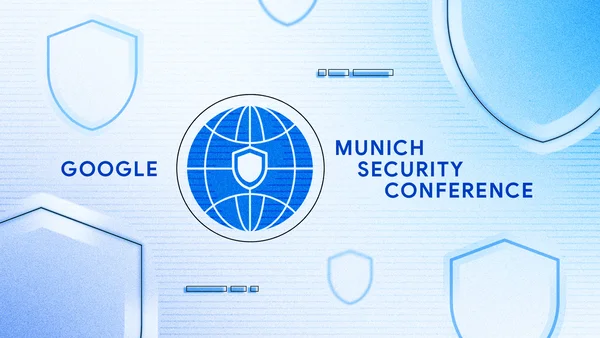Posted by Hee Jung, DevRel Community Manager
What is the ML Olympiad?
The ML Olympiad is an associated Kaggle Community Competitions hosted by ML GDE, TFUG, 3rd-party ML communities, supported by Google Developers. The ML Developer Programs team and the communities successfully ran the first round of the campaign in 2022 and are now launching the second round. The goal of this campaign is to provide ML training opportunities for developers by leveraging Kaggle’s features.

ML Olympiad Community Competitions
17 ML Olympiad community competitions are currently open. Visit the ML Olympiad page to participate.
Into the Space
- Predicting which spaceship passengers were transported by the anomaly using records recovered from the spaceship’s damaged computer system.
- Host: MD Shahriyar Al Mustakim Mitul / TFUG Dhaka
Water Quality Prediction
- Estimating the quality of water.
- Hosts: Usha Rengaraju, Vijayabharathi Karuppasamy (TFUG Chennai), Samuel T (TFUG Mysuru)
Breast Cancer Diagnosis
- Predicting medical diagnosis [breast cancer].
- Host: Ankit Kumar Verma / TFUG Prayagraj
Book Recommendations
- To provide personalized recommendations to users based on their reading history and preferences using various machine learning algorithms.
- Hosts: Anushka Raj, Yugandhar Surya / TFUG Hajipur
Argania Tree Deforestation Detection
- Use Sentinel-2 satellite imagery to detect and map areas of deforestation in the Argania region.
- Hosts: Taha Bouhsine / TFUG Agadir
Multilingual Spell Correction
- Reconstruct noisy sentences in European languages: English, French, German, Bulgarian and Turkish.
- Host: Radostin Cholakov (ML GDE)
CO2 Emissions Forecasting
- Forecasting CO2 emissions based on deforestation in Côte d'Ivoire.
- Hosts: Armel Yara, Kimana Misago, Jordan Erifried / TFUG Abidjan
Ensure Healthy Lives (in local language)
- Use ML techniques to help achieve common good health and well-being.
- Hosts: Vinicius Fernandes Caridá (ML GDE), Pedro Gengo, Alex Fernandes Mansano / TFUG São Paulo
Predictive Maintenance
- Predict future engine’s failures.
- Host: Daniel Pereda / TFUG Santiago
Firetrucks Are Red And Cars Are Blue
- To create a model that can accurately predict the correct class for each image, without overfitting.
- Host: Prasoon Kottarathil / TFUG Thrissur
Dialect Recognition (in Arabic)
- Dialect recognition in order to improve user experience in AI applications.
- Hosts: Ruqiya Bin Safi (ML GDE), Eyad Sibai, Hussain Alfayez / Saudi TFUG & Applied ML/AI group
Sentiment Analysis Of JUMIA Tunisia (in local language)
- Use JUMIA customer reviews to determine the sentiment of content from text data.
- Host: Boulbaba BEN AMMAR / TFUG Sfax
Kolkata Housing Prediction
- Kolkata housing prediction results can be used to address related social and economic issues.
- Host: Rishiraj Acharya / TFUG Kolkata
Can You Guess The Beer Style?
- This is a machine learning competition focused on classifying beer into 17 distinct styles based on key descriptors.
- Host: Marvik
Detect ChatGpt answers
- The goal of this competition is to classify ChatGpt answers vs real human answers for a variety of questions.
- Host: Elyes Manai (ML GDE) / IEEE ESSTHS + GDSC ISETSO + PyData Tunisia
MLAct Pose Detection
- Raising awareness about some basic yoga poses, and encouraging our community members to practice the basic parts of computer vision.
- Host: Imen Masmoudi / MLAct ML Community
Hausa Sentiment Analysis 2.0 (in local language)
- Classify the sentiment of sentences of Hausa Language.
- Hosts: Nuruddeen Sambo, Dattijo Murtala Makama / TFUG Bauchi
Navigating ML Olympiad
You can search “ML Olympiad” on Kaggle Community Competitions page to see them all. And for further info, look for #MLOlympiad on social media.
Google Developers supports the hosts of each competition. Browse through the available competitions and participate in those that interest you!
 Use Google Maps, Workspace, Fitbit and Pixel to hit your running goals in 2023.
Use Google Maps, Workspace, Fitbit and Pixel to hit your running goals in 2023.




 Kent Walker (Google President, Global Affairs) reflects on a year of dramatic changes in geopolitics and technology at MSC.
Kent Walker (Google President, Global Affairs) reflects on a year of dramatic changes in geopolitics and technology at MSC.

 One year after the Russian invasion of Ukraine, we’re sharing insights into changes in the cyber threat landscape triggered by the war.
One year after the Russian invasion of Ukraine, we’re sharing insights into changes in the cyber threat landscape triggered by the war.